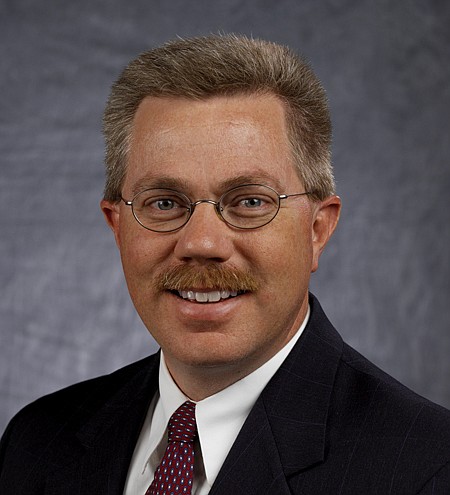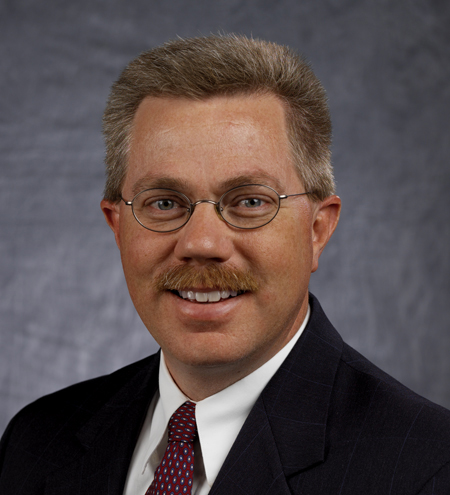Tourism is one of Tennessee's largest industries with a $16.7 billion direct economic impact in 2013, and Kevin Triplett is charged with growing it and spreading the wealth even more around the Volunteer State.
The new commissioner of the Tennessee Department of Tourist Development is a 49-year-old former vice president of public affairs for Bristol Motor Speedway.
Prior to joining BMS in 2005, he worked in various roles for NASCAR, ultimately serving as managing director of business operations, guiding the operation and administration of NASCAR's Sprint Cup Series, Nationwide Series, and Camping World Truck Series. He has twice been named one of NASCAR's "25 Most Influential" by The Charlotte Observer.
Triplett and his wife, Jill, live in Bristol with their two children, Lucas and Sarah Grace. He replaces Susan Whitaker, who announced her departure in December.
Triplett talked with Mike Pare about his new role:
Q. Where are you from originally and where did you go to college?
A. I grew up in Clintwood, Virginia, a small community of about 1,500 that relied heavily on coal mining. I graduated from East Tennessee State University with a communications degree and a concentration in journalism. I had double minors in history and English.
Q. Why did you decide to accept the commissioner's job?
A. It is an incredible honor to have been presented this opportunity. There are many reasons why this position is exciting. The tourism resources we have in Tennessee are incredible. The destinations, facilities, music, arts, parks, museums, history and natural beauty are amazing. We have it all.
Want a fast-paced experience? We have it. Want a slower pace? We have it. Want the most current entertainment? It's here. Want to turn back the clock and reflect on how it once was and, in many places, still is? We can show visitors where they can do that. It's like grub staking a prospector and setting him down in the middle of the Klondike during the Gold Rush. There is so much rich material there, where does one start?
Another great thing about tourism in Tennessee is the amazing group of people who work in this industry from Mountain City to Memphis. I look forward to working with them.
Q. How will your work as a journalist and then someone promoting NASCAR help you as commissioner?
A. Journalists provide information. They lay it out there for people; apprise folks of events or circumstances that arms them with information to make decisions. There was a time when NASCAR was fighting for recognition. It was as recent as 1997 when the schedule expanded from two to four races west of the Mississippi River. That took going into markets and explaining who we were and what we were and why so many people love the sport. It was a grass-roots education process in some ways.
The tourism industry in Tennessee is blessed with wonderful destinations. It's our job to lay it out there for people to inform them of all we have to offer. That already is being done well on so many levels but we want to keep the foot on the gas to use a racing term.
Q. Tennessee is a sprawling state geographically. How does your agency promote such diverse areas as Upper East Tennessee, Memphis and in-between?
A. The diversity is one of the incredible advantages we have here and music is a thread that stitches so much of it together. Even the music is diverse. Taking advantage of that is key.
Q. Tourism is a key industry in the Chattanooga area. How can the state help to continue to grow it in this region?
A. Chattanooga is a jewel. The resurgence there in the last 25 years has evolved from the area having destinations to being a destination. That area plays a critical role in our industry. The state office has worked in partnership with the Chattanooga Area Convention and Visitors Bureau and local tourism attractions over the past many years and will continue to do so in the future.
Q. The some $11 million the state is spending on tourism advertising is below what other states spend. In fiscal 2013, 20 states spent more than $12 million on their tourism offices. How will the state continue to grow tourism in such an environment?
A. It would be easy to say 'we want more.' Everyone wants more. But I would prefer that we focus on what we have, which actually is an increase from the past. Gov. [Bill] Haslam, from very early on in his administration, recognized the important role tourism plays in the financial well-being of Tennessee.
He created an advisory committee to take a look at things and provide input. He has fulfilled a pledge to increase the departmental budget. It is up to us now as a department and a business to be good stewards of that money and make smart decisions that create and develop the industry. If we do that, visitation increases and the state benefits. It is true that a rising tide raises all ships.

